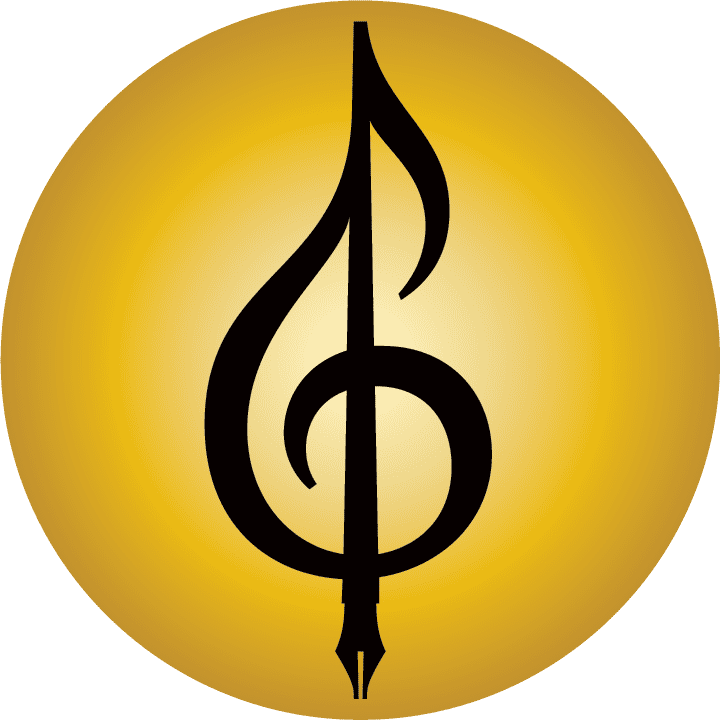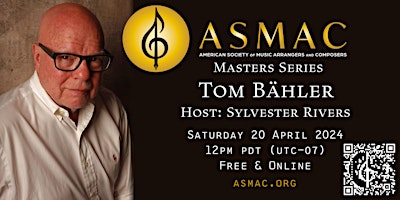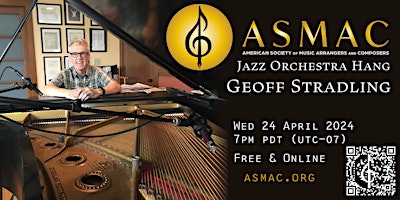William Ross ASMAC Master Class Huge Success
by Jeannie Gayle Pool
More than 70 composers, arrangers, orchestrators, and performing musicians attended ASMAC’s Master Class Saturday, May 1, 2010, at Los Angeles Valley College, featuring William Ross, and hosted by Conrad Pope.
The session began with ASMAC secretary Chuck Fernandez reading the mission statement for the Master classes. Then Larry Goldman paid tribute to ASMAC Board member David Blumberg, who passed away April 17 from complications related to cancer. Larry showed pictures from David’s life and career and talked about his devotion to ASMAC and particularly to the development of the master classes. Marlene Hajdu introduced composer/orchestrator Conrad Pope as host for the event. In introducing William Ross, Pope said that Ross has always done “the best job under the worst circumstance and the best job under the best of circumstances.” He described Ross as the “go-to-guy” for projects with problems, particularly record producers and said that he often asked himself, “What would Bill Ross do?” when faced with a problem situation in the music business.
Some of Conrad Pope’s recent credits as orchestrator include the Star Wars films (The Phantom Menace, The Attack of the Clones, The Revenge of the Sith) the Harry Potter series,Indiana Jones and the Kingdom of the Crystal Skull, Pirates of the Caribbean, Star Trek X, theMatrix films. Memoirs of a Geisha, Julie and Julia, The Curious Case of Benjamin Button, A Christmas Carol and The Adventures of Tintin: The Secret of the Unicorn. His recent original film scores include The Presence, In My Sleep, The Band from Hell, Pavilion of Women, Ghost Ship,and Temptation.
After a brief introduction the material for the master class was organized into five sections: elements, arranging for artists, music directing, orchestrating for film and, film scoring. Ross briefly described his background: he grew up in Ventura County, with blue-collar parents and always loved playing the piano. At the suggestion of his mother who was a nurse, he went to UCSB as a pre-med major but he had trouble making sense of where his life was going His philosophy professor, Paul D. Weinpahl (1916-1980, wisely told him to think about what felt good to him and suggested that his career should involve work about which he was passionate. Ross knew he loved playing the piano and he always loved orchestral music so he decided to study music.
Ross had always admired John Williams’ music so he learned about composing by transcribing Williams’ scores. Ross recommends that musicians study and analyze scores by reducing the scores to two, three, or four staves and look at the elements that make up that music and to understand “how something simple can be spectacular.” The texture of the piece emerges instantly in the score reduction process.
Ross thinks of himself “as a problem solver and a challenge confronter,” and is basically self-taught as a composer, arranger, and orchestrator. He encourages other musicians to analyze the elements in a piece of music: what elements make this music work? As an example he showed his reduction of Williams’ score for “Princess Leia’s Theme” from Star Wars.
Ross said that by studying the elements in various compositions, he developed “3 x 5 cards” in his heads, each with an idea, each element, that could be used in the right place at the right moment in his arrangements, orchestrations, and compositions. He urged the audience to transcribe music and “zero in on the exact part you love” to figure out how the music is put together. He talked about architecture in music and how powerful it can be in making sound organized and meaningful. “If the architecture is poor, the music won’t leap off the page.” He used an analogy of trying to paint a building whose architecture is crumbling: “Sometimes we have to shore up the building before we can paint it.” In other words, sometimes the architecture is bad in a piece of music and we have to fix the structure before we can arrange or orchestrate the piece.
Pope added, “This is still the ear business. Ultimately what we do has to sound good.” He agreed that transcribing a lot of music would help in learning what is the best tone, color, and weight for the music.
Ross said in solving a musical problem, one needs to ask what is the emotional goal? Once that is understood, one can figure out how to achieve that musically. He described himself as “the simplest arranger around” because to him the melody is the most important. He shares some of the arrangements he did for Barbra Streisand.
Then Ross discussed his work as a music director saying that when accompanying vocalists it is essential to control each beat in the orchestra, particularly the fourth beat of each bar and to listen the vocalist breathe. He always has a monitor speaker with the vocalists’ voice close to him during live performance and recording, so that he can focus on the vocalist’s breathing. He played a clip from a Streisand Madison Square Garden performance which showed how he controlled each beat in the orchestra, even with the added impediment of the impossible setup of the orchestra seated in two separate groups and separated by a walkway from which Streisand performed.
In arranging, Ross said that one should not compete rhythmically with the melody and to stay out of the vocalist’s range because “the mind wants to make sense of things and arrangers should not get in the way of that process.” He said classic arrangements is what Barbra requires because every song has to resonate with her. Ross said that high obligatos work well with strings in unisons. Conrad Pope added that Ross’s strength is in his voice leadings.
Ross shared with the audience that he always thought of himself as a craftsman, but at a certain point in his life he realized that we should also claim the artistry of what we do as arrangers, orchestrators, and composers, and claim the title Artist, too. Ross then played some arrangements he had done for David Foster projects, including arrangements for Celine Dion and Andrea Bocelli.
Next Ross played his orchestration of the main title for Al Silvestri’s score forForrest Gump (1994) and discussed working with Silvestri to come up with example the right amount of the “whimsical” needed for the score. Each music example engendered questions from the participants and Ross answered each one carefully and with a thoroughness and thoughtfulness rare in such an environment.
Ross ended the workshop with some cues from his score for Tales of Despereauxand discussed how he did “free timing conducting” for his film scores with a system of visible streamers. He showed some composition techniques he likes to use: one involves layering of two minor triads that “rub up against one another” to create aneery effect, for example, e minor and f minor triads; another one he talked about using the diminished scale (also known as the half-whole scale).
Ross was well-prepared and had carefully thought out what he wanted to say. He incorporated his personal philosophy with his music compositional techniques. Everyone was impressed by Ross’s and Pope’s generosity of spirit throughout the three and half hour session. They were both humble and gracious, and it was clear that they enjoy mutual admiration and respect, not to mention a long-time friendship. The Master class was especially fascinating because it involved a composer (Ross, who works as an orchestrator for other composers) and his orchestrator (Pope, who also works as a composer) and they discussed how they worked together and showed some examples of Ross’s sketches and Pope’s orchestration of those sketches.
Ross humbly acknowledged some of the legendary composers, arrangers, and orchestrators in the room and said that he was honored by their presence: Van Alexander, Duane Tatro, and Bill Holman. Ross introduced trumpeter/conductor Jack Feierman who had taught him conducting, harpist Gayle Levant and keyboardist Mike Lang who had played many of his sessions. He also singled out Doug Besterman for his fine arrangements, also for Streisand.
The master class ran smoothly and was produced by Larry Goldman and Milton Nelson. Chuck Fernandez manned the computer for the presentation, and Nelson, Goldman, Hajdu, and Fernandez (all ASMAC board members) provided the high-tech equipment and refreshments.
Others were acknowledged for their assistance with the program: Jerome Leroy (Ross’s assistant), helped with the preparation of the music examples; Mike Julian hosted the session at LA Valley College, and David Rohling provided the audio support. The next ASMAC Master Class will take place in July, featuring Gerald Wilson. Visit http://www.asmac.org for more details about the upcoming master classes and other events. To purchase a copies of ASMAC master classes and other items, visit the ASMAC on-line store.
William Ross is a prolific award-winning composer and arranger whose work
has spanned feature films, the recording industry and television. He recently completed
the score to Universal Pictures’ first CGI-animated film, The Tale of Despereaux, and
has composed music for such films as Ladder 49, The Game of Their Lives, Tuck
Everlasting, The Young Black Stallion, and My Dog Skip. He also adapted and
conducted the score to Harry Potter and the Chamber of Secrets.
His work in television includes the score to the critically acclaimed mini series
Me and My Shadows, Life with Judy Garland and the Emmy-winning music for the
Tiny Toon Adventures’ episode “Fields of Honey.” Mr. Ross has arranged music for a remarkable list of artists including Barbra Streisand, Celine Dion, Josh Groban, Andrea Bocelli, Michael Buble, Kenny G., Sting, Quincy Jones, David Foster, Bette Midler, Barry Manilow, Mariah Carey, and Whitney Houston, to mention just a few. The records on which he has worked have sold over 250 million copies combined in the United States.
He has served as Music Director and Conductor for many artists and occasions,
including Barbra Streisand’s historic 2006 and 2007 concert tours and the 79th Academy Awards ceremony in 2007, for which he received his second Emmy Award.
His arrangements have been featured in many films and include such hits as
Andrea Bocelli’s “God Bless Us Everyone” from Disney’s A Christmas Carol, Celine
Dion’s Grammy-winning “My Heart Will Go On,” from the motion picture Titanic;
“Believe,” sung by Josh Groban in the film The Polar Express; “The Prayer” with
Andrea Bocelli and Celine Dion from Quest for Camelot, for which he received a
Grammy nomination; and the Academy Award Nominated song “Run To You” sung by
Whitney Houston in The Bodyguard.
Arrangements by Mr. Ross have been a part of the opening ceremonies of several Super Bowls along with the opening and/or closing ceremonies of the Olympic Games in Calgary (1988), Atlanta (1996), Salt Lake City (2002), Torino (2006) and Vancouver (2010). He was awarded an Emmy Award in 2009 for Outstanding Original Music for his work on the song “Hugh Jackman Opening Number,” featured during the 81st Academy Awards ceremony. Mr. Ross is the recipient of four Emmy Awards, two BMI Film Music Awards and was nominated for an Annie Award and a Grammy Award.
ASMAC Board Member Jeannie Gayle Pool is a composer, author, and producer, and often writes about music. She is music archivist for Paramount Pictures Features Music Department.
[nggallery id=42]


